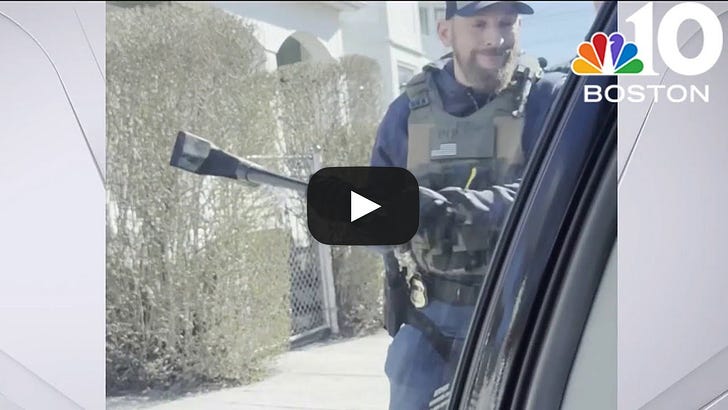From Jonathan V. Last of the
Bulwark, "Inside the Mind of an ICE agent":
I know what it is like to lose your job because you won’t do what powerful people want. I understand how scary that is when you’re middle-aged and have a family to support. I’m not saying it’s easy.
For most people, refusing to be complicit in evil will be the hardest test they are ever given.
2. ICE
Then again, for some people the test seems easy.
Our immigration enforcement officers at ICE have witnessed a sea-change in operations over the last four months. They now routinely detain American citizens in airports and use axes to pry frightened people out of their cars as they wait for their legal representation. Perhaps you have seen this video.

I am confused about one thing: With this radical change in job description, why aren’t ICE agents quitting their jobs in droves?
Imagine you work in a widget factory. You have no real passion for widgets, but the work is fine. It’s a job.
Then one day you show up to the office and the company is under new management. The owners have decided to transition from making widgets to slaughtering puppies. Your job now is to stand in front of a conveyor belt and kill puppies. It’s kind of a big change.
Would you stay in that new job? Do you think most of your colleagues would stay?
And if they did stay—all of them—would it make you suspect that all those years you were making widgets together, maybe your buddies secretly wished they could be killing puppies instead?
For four months ICE agents have acted in ways that validate the worst caricatures of the agency.
And yet we have not seen a wave of resignations. We have not seen pushback from career employees. We have not seen even off-the-record quotes of concern from ICE officers in the media
I wonder why that is.¹ (Where does the “Abolish ICE” movement go to get its apology?)
There have been books written about this sort of thing. [Link is to Hitler's Willing Executioners: Ordinary Germans and the Holocaust, by Daniel Jonah Goldhagen].

No comments:
Post a Comment